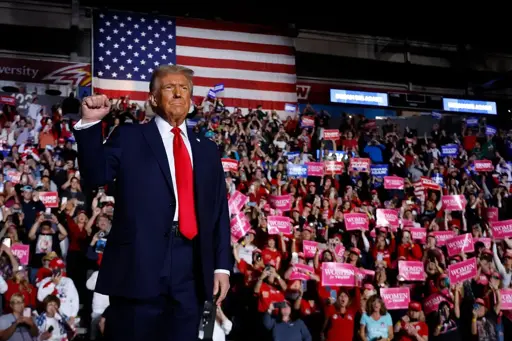- cross-posted to:
- news@lemmy.world
- cross-posted to:
- news@lemmy.world
Summary
Plans for a potential Trump third term are already being discussed, despite constitutional limitations.
Trump’s former strategist Steve Bannon has suggested they’re “working on it,” while Trump himself has made several hints about running again after 2028.
Some Republicans, like Congressman Andy Ogles, have proposed amending the 22nd Amendment to allow three terms.
Constitutional law professor Michele Goodwin warns that Trump’s administration has already shown “a display of lawlessness” with controversial executive orders and policies, while critics note Democratic opposition has been largely absent, allowing these discussions to gain traction.



The wording is specifically that you need to be qualified to hold the office of the president, not to run for the office.
With qualifications to hold the office being:
So the phrasing of the 22nd created an issue:
Elsewhere it talks about eligibility to hold office, but the 22nd only refers to election.
https://www.law.cornell.edu/constitution-conan/amendment-22/overview-of-twenty-second-amendment-presidential-term-limits
There’s also a similar issue with the speaker of the house, where eligibility isn’t as clearly defined as one might expect.
While the intent of the law was clearly to codify the previous pattern of capping it at two terms (and being spiteful to FDR) it’s phrased with enough ambiguity that it’s clear how they’ll argue it.